
Introduction:
Good day! My name is Julia Rakusa. I have decided to make this book to help children (6 Grade) so that they can train all the necessary skills on various topics. However, I want to note that the book will be useful not only for children, but also for everyone who wants to improve their level of English. If you want me to assist you with this book, please, send me an email ([email protected]) and contact me for detailed information.
Вступ:
Доброго дня! Мене звати Юлія Ракуса. Я вирішила створити цю книгу, щоб допомогти дітям (6 клас), потренувати всі необхідні навички на різні теми. Однак хочу відзначити, що книга буде корисна не тільки дітям, але і всім, хто хоче вдосконалити свій рівень англійського. Якщо ви хочете допомогу у роботі з книгою, будь ласка, надішліть мені листа [email protected]) і зв’яжіться зі мною для отримання детальної інформації.
Instructions to use the application:
- The violet or blue underlined text means the hyperlink. If you want to open it, just click on it.
- To work better with the application, please, register and log in such accounts: Google, ThinkLink, Quizlet.
- You are also welcome to register and log in Edpuzzle and join the class (https://edpuzzle.com/join/teciren).
- In order to do exercises or watch the videos easily, please, open them in a full size.
- If you have trouble opening some pages, please, use the Adobe Flash Player or just install it.
Інструкції щодо користування додатком:
-
Фіолетовий або синій колір шрифту і підкреслення означають гіперпосилання. Щоб перейти по ним натисніть на виділене слово.
-
Для кращої роботи з додатком, зареєструйтесь та увійдіть в наступні сервіси: Google, ThinkLink, Quizlet.
-
Зареєструйтеся та увійдіть до Edpuzzle і приєднайтеся до класу (https://edpuzzle.com/join/teciren).
-
Для того, щоб зручніше виконувати вправи або дивитися відео, відкривайте їх в режимі повного вікна.
-
Якщо сторінка не відкривається, то вам необхідно увімкнути Adobe Flash Player або натисніть на цю сторінку.


Our life is very important for us and family and friends are such people we can not imagine our life witout. That`s why it`s really necessary to know these words. Click here, then click ‘to start lesson’, then learn and train the words.

Now, train your skills
The exercises were done by Юлия Ракуса(https://learningapps.org//display?v=pvadj8iua19), Ирина Левина (https://learningapps.org//display?v=phy3sc5va01), Наталия Симкина (https://learningapps.org//display?v=p2167ya9318), Елена Л. (https://learningapps.org//display?v=pvjn40mst16)
Now, train your skills
The exercise was done by julia zhuravlyova(https://learningapps.org/display?app=2652532)
Look through the words about appearance and character, and then train your skills
The exercises were done by maureen_k (https://learningapps.org/4030439), Дарья Катефина (https://learningapps.org/5376488), Anastasiya Ushakova(https://learningapps.org/3792752), Татьяна Олексюк(https://learningapps.org/1209880), Tatiana Glushakova (https://learningapps.org/1710894, https://learningapps.org/1610906)

Now, train your skills
The exercise was done by Елена Пензина (https://learningapps.org/1715759)

Read the text again and choose True or false or doesn`t say
Now, train your skills
The exercise was done by: Ирина Левина (https://learningapps.org/1307372)

Grammar
Adverbs of manner are used to tell us the way or how something is done.
An adverb can be added to a verb to modify its meaning.
“She plays piano.” – An adverb of manner can be added to the verb (play) to modify its meaning and give us more information on how she plays piano.
“She plays piano beautifully.”
“She plays piano softly.”
“She plays piano terribly.”
Adverbs of manner are usually placed after the main verb or after the object. “He left the room quickly.”
It can also be used before the verb. “He quickly left the room.”
Adverbs of Manner – Examples
“The rain fell heavily.”
“When my teacher speaks, we listen carefully.”
“Make sure you write neatly.”
“She easily passed the test.”
Now watch the video and try to understand the using of adverbs.
Adverbs of manner are usually formed from adjectives by adding –ly:
bad > badly; quiet > quietly; sudden > suddenly
but there are sometimes changes in spelling:
easy > easily; gentle > gently
If an adjective ends in –ly we use the phrase in a …. way to express manner:
Silly > He behaved in a silly way.
Friendly > She spoke in a friendly way.
A few adverbs of manner have the same form as the adjective:
They all worked hard.
She usually arrives late.
I hate driving fast.
Note: hardly and lately have different meanings:
He could hardly walk = It was difficult for him to walk.
I haven’t seen John lately = I haven’t seen John recently.
We often use phrases with like as adverbials of manner:
She slept like a baby.
He ran like a rabbit.
Now, train your skills


Now, train your skills
The exercise was done by: Анастасия Снытко(https://learningapps.org/5981213)
Now, train your skills
The exercise was done by Galina Sedakova(https://learningapps.org/1151746)

Watch the interactive video and do all quizzes ![]()
Small Talk
Now you are going to listen to the video about family and try to speak, using the information from the video and questions below. (*Запиши відповідь за допомогою мікрофона та відправь мені на пошту).
Answer the questions:
1.Do you get along well with your family?
2. Do you often visit your grandparents?
3. Are your parents strict?
4. Are friends more important than family?
5. How many children are there in your family?

Prepare yourself to write a letter. Watch the interactive video and do all quizzes ![]()
Writing(a letter about your family)
Read the letter about family. Then use this example to write your letter. Copy your letter to Google-doc.
From: [email protected]
Subject: My family
Dear Yoko
Let me tell you about my family. I live with my mum, my dad and my big sister. We live in California. My mum’s name is Carmen. She’s Mexican and she speaks English and Spanish. She’s a Spanish teacher. She’s short and slim, she’s got long, brown hair and brown eyes. My dad’s name is David. He’s American. He’s tall and a little fat! He’s got short brown hair and blue eyes. He works in a bank. My sister Shania is 14 and she loves listening to music. She listens to music all the time! She’s got long brown hair and green eyes, like me. I’ve got long hair too. We’ve got a pet dog, Brandy. He’s black and white and very friendly.
Write soon and tell me about your family.
Love
Kelly


Work with words
Now, train your skills
This exercise was done by yelena6161 (https://learningapps.org/2121007)
Now, train your skills
This exercise was done by Лариса Викторовна(https://learningapps.org/1540727)
Now, train your skills
Now, train your skills
Now, train your skills
Now, train your skills
This exercise was done by teacher_viktoria p(https://learningapps.org/3980392)
Check yourself
Work with words
Read the words and try to remember
English |
Transcription |
Ukrainian |
| tableware | [‘teɪblweə] | посуд |
| plate | [pleɪt] | тарілка |
| bowl | [bəʊl] | миска |
| cup | [kʌp] | чашка |
| mug | [mʌg] | кухоль |
| spoon | [spuːn] | ложка |
| fork | [fɔːk] | виделка |
| knife | [naɪf] | ніж |
| glass | [glɑːs] | склянка |
| saucepan | [‘sɔːspən] | кастрюля |
| lid | [lɪd] | кришка |
| ladle | [‘leɪdl] | черпак |
| jug | [ʤʌg] | глечик |
| kettle | [‘ketl] | чайник |
| coffeepot | [‘kɔfɪpɔt] | кавник |
| teapot | [‘tiːpɔt] | чайник (для заварки) |
| frying pan | [‘fraɪɪŋˌpæn] | сковорода з ручкою |
| pan | [pæn] | сковорода |
| salt shaker | [sɔːlt ‘ʃeɪkə] | сільничка |
| pepper shaker | [‘pepəˌʃeɪkə] | перечниця |
| sugar bowl | [‘ʃugə bəul] | цукорниця |
| bottle | [‘bɔtl] | пляшка |
| napkin | [‘næpkɪn] | серветка |
Work with words
Work with words
Now, train your skills
Creative thinking. Now, train your skills

Read and say: What does the word “food” mean to you (*Відповідь запиши у відповідний Google-документ)
“What does the word “food” mean to you? Is it a pleasure or just a fuel? This question has been disputable for a long time and everybody has his personal opinion about it. The most of people would agree that we eat in order to have enough energy to complete our routine tasks. Nevertheless, nobody would agree to eat the same products from day to day. Moreover, food is certainly more than just a number of proteins, fats and carbohydrates. It’s the way to get some satisfaction after a long working day for the majority of people.” (Tis text is from EnglishDom)
Read the text and do exercise below
Food in our life
Food is the basis of our life, because human body cannot exist without it. Every day we eat and we have to spend a significant part of our income on food, if we want to have a healthy diet.
Food plays a very important role for everyone and different nations eat different meals, but the majority of countries have 3 main courses of meal: breakfast, lunch and dinner.
One famous English saying goes “We are what we eat”, and it’s true. The food we eat can influence our body and our mind. It contains nutrients, such as proteins, vitamins, minerals, fats, carbohydrates. Different products contain different nutrients. For example, we can get lots of vitamins eating fruit and vegetables.
If we want to live long, we should pay attention to what we eat. A healthy diet usually includes a lot of fruit and vegetables, regular portions of fish or white meat, grains, nuts and a few liters of water per day. It is better to choose products without artificial ingredients and with minimal quantity of sugar.
Watch the interactive video and do all quizzes![]()
Read the dialogues and say where each one takes place. Then explain the words in bold.( *Відповідь запиши у відповідний Google-документ)
A) Sue: I’m going to get some things from the corner shop, Bill. What do we need?
Bill: Let’s see … Well, we need a loaf of bread and some cheese.
Sue: Is there any rice?
Bill: Not much. Perhaps you should get some more.
Sue: Okay. And there’s plenty of chicken left from last night, so we can have that.
Bill: Urn … it’s all gone, actually.
Sue: All gone?! But there was a lot left over!
Bill: Er … I’m afraid I felt sorry for that stray cat again.
Sue: And you gave him all our chicken?
Bill: He was starving!
Sue: Well, I wanted to make chicken curry — but I think it’ll just be bread and cheese for dinner now!
B) Waitress: Can I take your order?
Les: Yes – I’d like a double cheeseburger with a large fries, a side salad and an apple pie, please.
Ron: But Les, what about your diet?
Les: Oh, yes, I forgot! Can I have a Diet Coke too, please?
C) Waiter: Good evening, sir. May I take your order?
Tim: Yes, please. I’ll have the vegetable soup to start with.
Waiter: And for the main course?
Tim: I’m not sure. What’s today’s special?
Waiter: It’s grilled fish with carrots.
Tim: That sounds nice. I’ll have that, please.
Waiter: Would you like anything to drink?
Tim: A large glass of mineral water, please.
Waiter: Thank you.
(text from Click On 2, )
Work with words
a small shop, especially on a corner of a road,
that sells foods and other things that are often needed
a pet that no longer has a home or cannot find its home
dying because of not having enough food
an eating plan in which someone eats less food, or only particular types offood, because they want to become thinner or for medical reasons
to be unable to remember a fact, something that happened, or how to do something
a request to make, supply, or deliver food or goods
the largest or most important part of a meal in which there are different partsserved separately
big in size or amount
not ordinary or usual
natural water from underground, containing dissolved minerals that arebelieved to be good for your health
Read the text and do exercise on the next page
Food around the world
New Year
In China people eat eight, ten or twelve dishes of food at New Year. This is because an even number means double the luck. A lot of the food at New Year has a special meaning. Seaweed means good luck and long noodles mean long life. They eat whole vegetables and don’t use knives to cut things, because this means the end of your good luck.
In Ukraine there is lots of food on the table so the next year will be happy and plentiful. At 11.59 people open champagne and wait for the clock to strike twelve. Then they make a toast for the New Year. They wish everybody good luck and happiness.
In Spain people eat twelve grapes – one with each chime of the clock at midnight. This brings good luck for the next twelve months. But it is difficult to eat twelve grapes in twelve seconds, so people usually have a mouth full of grapes at the end!
Weddings
Italians eat doughnuts in the shape of bowties for good luck. They also eat sugared almonds when they hope for a baby. Many years ago in Britain the father of the bride gave the groom ‘honey mead’ (a honey drink) for a whole month. In this way the couple had a month of sweetness and happiness. We have now changed the word to ‘honeymoon’ – the holiday a couple goes on after their wedding.
Birthdays
When a child is born in China, the father gives red eggs to his friends and family – an even number for a girl and an odd number for a boy. The birthday party started in Europe in the Middle Ages. People were afraid of ghosts and bad spirits on their birthdays. Friends and family came to visit you with presents to stop them.
In Mexico people fill a paper animal with sweets. Children close their eyes and hit the animal until the sweets fall out. Then everybody eats the sweets.
This page has been downloaded from www.macmillanenglish.com/inspiration.
It is photocopiable, but all copies must be complete pages. Copyright © Macmillan Publishers Limited 2006.
Read the text again and do the exercise
To read and speak about food, fun, celebrations, you need the appropriate vocabulary.
Work with words
health – здоровье
wealth – здоровье
happiness – счастье
Chinese New Year – Китайский Новый год
bring luck – приносить удачу
colourful street parades – красочные уличные парады
fish dishes – рыбные блюда
sesame seed balls – кунжутные шарики
chicken wings – куриные крылья
amazing – изумительный
independent – независимый
potato salad – картофельный салат
Read the text “Memories of May Day” and then check yourself.

I’ll never forget the May Day Festival we had every year when I was a little girl. On 1st May, everyone on our village used to celebrate the start of Spring with dancing, food and fun!
One of the things I liked best was the maypole dance. The children from my school made a circle around the maypole, and we covered the pole with pretty ribbons as we danced around it.
After the dancing we always had delicious food. There was a huge buffet in the village hall, with mountains of sandwiches, cakes and biscuits. At the end of the day, there was never any food or drink left, because we were so hungry after all the dancing and party games.
Today, not many English villages celebrate May day in the traditional way we used to. I always had a great time though, and I feel happy when I remember that.
(This page has been downloaded from http://www.yaklass.ru)
Food Around The World
Around the world, people eat different food to stay healthy. What healthy food around the world do you know?
In Japan, people eat lots of rice, vegetables, and fish. This food has lots of fiber and vitamins. It doesn’t have much fat.
![]() Many people in Asia use chopsticks to cook and eat food. Chopsticks were invented in China about 5,000 years ago
Many people in Asia use chopsticks to cook and eat food. Chopsticks were invented in China about 5,000 years ago
In countries near the Mediterranean Sea, people eat lots of bread, salad, and fruit. They use olive oil and tomatoes for making salads and for cooking. Scientists think that olive oil and tomatoes help people to stay healthy.
In Peru and Bolivia, people eat lots of fruit and vegetables. Some people eat rice or quinoa seeds with meat and potatoes. Quinoa has lots of proteins, fiber, and iron.
(Text from Oxford Read and Discover)
Read the text again and do the exercise(*Відповіді на питання відкритого типу додай до Google-документу)
1 What is the most popular food in your country?
2 Which food from your country is healthy?
3 Which food from your country is unhealthy?

Grammar
COUNTABLE NOUNS
Countable nouns are for things we can count using numbers. They have a singular and a plural form. The singular form can use the determiner “a” or “an”. If you want to ask about the quantity of a countable noun, you ask “How many?” combined with the plural countable noun.
Singular |
Plural |
|---|---|
one cat |
two cats |
one pig |
three pigs |
one man |
five men |
one thing |
six things |
one candy |
many candies |
EXAMPLES
-
She has three cats.
-
I own a house.
-
I would like three books please.
-
How many friends do you have?
UNCOUNTABLE NOUNS
Uncountable nouns are for the things that we cannot count with numbers. They may be the names for abstract ideas or qualities or for physical objects that are too small or too amorphous to be counted (liquids, powders, gases, etc.). Uncountable nouns are used with a singular verb. They usually do not have a plural form.
- coffe
- sugar
- salt
- water
- air
- rice
- knowledge
- beauty
- anger
- fear
- love
- money
- research
- safety
- advice
We cannot use a/an with these nouns. To express a quantity of an uncountable noun, use a word or expression like some, a lot of, much, a bit of, a great deal of , or else use an exact measurement like a cup of, a bag of, 1kg of, 1L of, a handful of, a pinch of, an hour of, a day of. If you want to ask about the quantity of an uncountable noun, you ask “How much?”
EXAMPLES
- There has been a lot of research into the causes of this disease.
- He gave me a great deal of advice before my interview.
- Can you give me some information about uncountable nouns?
- He did not have much sugar left.
- Measure 1 cup of water, 300g of flour, and 1 teaspoon of salt.
- How much rice do you want?
PIT FALLS (Подводные камни)
Some nouns are countable in other languages but uncountable in English. They must follow the rules for uncountable nouns. The most common ones are:
accommodation, advice, baggage, behavior, bread, furniture, information, luggage, news, progress, traffic, travel, trouble, weather, work
EXAMPLES
- I would like to give you some advice.
- How much bread should I bring?
- I didn’t make much progress today.
- This looks like a lot of trouble to me.
- We did an hour of work yesterday.
Now, train your skills
The exercise was done by Наталья Чертопрудова (https://learningapps.org/868999)
A quantifier, as its name implies, expresses quantity. Quantifiers can be a single word or a phrase and are used with nouns.
They can be used with either a countable or an uncountable noun to express amount or quantity.
• some + plural nouns or uncountable singular forms. ( has an affirmative meaning)
• any + plural nouns or uncountable singular forms. ( is used with negative sentences and questions.
• much + plural nouns
• a lot of + uncountable or plural nouns( is more usual in affirmative sentences)
• a little + singular uncountable nouns ( has a positive meaning)
• a few + plurals ( has a positive meaning.)
• no + zero quantity ( no = not any)
Work with words
Now,train your skills
Check yourself

Small Talk
Answer the questions
(*Запиши відповідь за допомогою мікрофона та відправь мені на пошту)
1. Do you follow your health? Do you follow what you eat?
2. Would you say that you have a balanced healthy diet and how can you improve it?
3. Count your favorite fruit and vegetables.
4. What do you usually eat in the morning?
5. What is the traditional dish for your family?
Watch the interactive video and do all quizzes![]()
Listening
The exercise was done by Елена Шелякина(https://learningapps.org/547325)
Listen to the text “Watermelon Thump”and do the exercise below
Task. Tell us about your eating habits answering the questions
* Відповідаючи на питання (1-7), опишіть свої звички в їжі
(*Запиши відповідь за допомогою мікрофона та відправь мені на пошту)
1. At what time do you eat the main dishes of the day?
2. Do you eat regularly?
3. What do you often eat for breakfast, lunch and dinner.
4. What kind of food do you hate?
5. What is your favorite food?
6. How often do you eat in restaurants?
7. What’s the strangest thing you’ve ever eaten?

Writing(an article about a festival which you attended)
First,answer the questions
1 Which festival are you going to write about?
2 When/Where did it take place?
3 What was the reason for celebrating the festival?
4 What activities did you/other people take part in?
5 What food did people make?
6 How do you feel about that festival?
Then read plan
Plan
Introduction
(Para1) name/date/place/ reason
Main Body
(Para 2) activities
(Para 3) food
Conclusion
(Para 4) feelings about festival
Read the letter about family. Then use this example to write your letter. Copy your letter to Google-doc.
(*Напиши письмо про фестиваль, який ти відвідав (хочеш відвідати) та розкажи про їжу на цьому фестивалі. Додай письмо до документа на гугл-диску)
May Day Festival
I’ll never forget the May Day Festival we had every year when I was a little girl. On 1st May, everyone in our village used to celebrate the start of Spring with dancing, food and fun!
One of the things I liked best was the maypole dance. The children from my school made a circle around the maypole, and we covered the pole with pretty ribbons as we danced around it.
After the dancing we always had delicious food. There was a huge buffet in the village hall, with mountains of sandwiches, cakes and biscuits. At the end of the day, there was never any food or drink left, because we were so hungry after all the dancing and party games.
Today, not many English villages celebrate May Day in the traditional way we used to. I always had a great time though, and I feel happy when I remember that.
Song
Favourite food |
|
|
What I like about cheese, I like to talk about food, Tell me all about your favorite foods, Well, I like noodles in a bowl, |
|


Shopping is a great way to communicate with lots of different people, and it really helps to improve your level of English! Every person sometimes goes shopping. So, you should know the shopping words!
USEFUL VOCABULARY
 |
 |
 |
| Shop(s) | Customer(s) | Cashier(s) |
|---|---|---|
 |
 |
|
| Wallet(s) (m) Purse(s) (f) |
Scales | Till(s) |
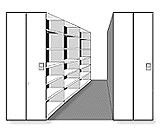 |
 |
|
| Shelf | Shelves | Barcode(s) |
 |
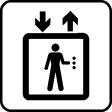 |
|
| Trolley(s) | Lift(s) | Bag(s) |
 |
||
| Basket(s) | Changing Room(s) | Escalator(s) |
Ways to pay |
||
 |
||
| Cheque(s) | Cash | Note(s) |
 |
 |
|
| Coin(s) | Credit card(s) Debit card(s) |
https://www.learnenglish.de/vocabulary/shopping.html
GENERAL MONEY VOCABULARY
THE MAJOR CURRENCIES
| $ = Dollar | € = Euro |
|---|---|
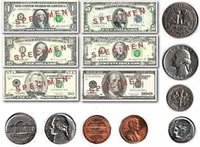 |
 |
| £ = Pound (Sterling) | ¥ = Yen |
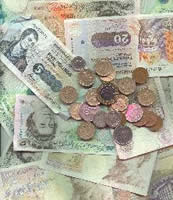 |
 |
https://www.learnenglish.de/vocabulary/money.html
Now,train your skills
This exercise was done by Людмила Шклярова (https://learningapps.org/4255201)
Where to buy what
 |
Chemist’s |
|---|---|
| Ladies Clothing Shop or Boutique | |
| Mens Clothing Shop or Tailor’s | |
| Shoe Shop or Cobbler’s | |
| Jeweller’s | |
 |
Electrical Store |
 |
Toy Shop or Toy Store |
 |
Record Shop |
 |
Book Shop |
 |
Newsagent’s |
 |
Ironmonger’s |
| Optician’s | |
 |
Haberdasher’s |
| All or most of the above | Department Store |
| Butcher’s | |
| Fishmonger’s | |
| Greengrocer’s | |
| Baker’s | |
 |
Delicatessen |
 |
Grocer’s |
| Off Licence | |
| Florist’s | |
| Post Office | |
| All or most of the above | Supermarket |
https://www.learnenglish.de/vocabulary/shopping.html
Useful Shopping Phrases
| Finding a Shop | Opening Hours |
|---|---|
QUESTIONS
ANSWERS/COMMENTS
|
QUESTIONS
ANSWERS/COMMENTS
|
https://www.learnenglish.de/vocabulary/shopping.html
| Shopping for Clothes | Paying |
|---|---|
QUESTIONS
ANSWERS/COMMENTS
|
QUESTIONS
ANSWERS/COMMENTS
|
https://www.learnenglish.de/vocabulary/shopping.html
Now, train your skills
This exercise was done by Ирина Туриченко (https://learningapps.org/323668)
Now, train your skills
This exercise was done by Венера Гафиятуллина(https://learningapps.org/1158944)
Now,train your skills
This exercise was done by oksana rakova (https://learningapps.org/1123950)

Going shopping is the part of our everyday life! Click the link and know the Smiths do the shopping! And then make tasks there.
Now, train your skills
This exercise was done by lutik26(https://learningapps.org/3980334)

Grammar
CONJUNCTIONS(SO,THEN…)
We use and, or and but to connect two parts of sentences which are similar in grammatical status.
Do you want chocolate, strawberry or vanilla? (joining words)
Amy’s dad is taking us on Saturday morning, and he’s offered to bring us home again on Sunday. (joining clauses)
We use and for adding information, or for giving alternatives and but for unexpected or different information.
I’m OK for food, dance and music, and I’m having a wonderful time.
There’s a reggae band from Jamaica or a Russian electro-pop group on the other stage.
She’d like to go but she can’t.
There are a lot more conjunctions which we use to connect one clause with another clause.
For example: because, for giving reasons, so, for talking about results or purposes, and although, for unexpected or different information.
- I’d like to see that Irish band, because Celtic music is pretty cool.(the second clause explains the reason Alfie wants to see the Irish band)
- Although he doesn’t like camping, he goes to lots of music festivals.(the speaker thinks it’s unusual to go to music festivals if you don’t like camping)
- We need to arrive early so (that) we can get a good place.(the second clause shows the purpose of the first clause; that is optional)
Now watch the video about using conjunctions and try to understand
Now, listen to the song about conjunctions and try to understand
Now, train your skills
This exercise was done by Дарья Катефина (https://learningapps.org/5191884)

Listening
Now you are going to listen to small dialog between two people about buying presents. Click here, listen to the audio and check yourself
Watch the ineractive video and do all quizzes ![]()
Small Talk
Make a sory aboyut shopping. The questions can help you. (*Запиши відповідь за допомогою мікрофона та відправь мені на пошту).
About you
- Do you enjoy shopping?
- Where is your favorite place to shop for clothes?
- What products do you prefer to shop online for?
- What do you buy for yourself?
- When do you go shopping?
- Name a shopping centre or department store in your town.
- Do you like going there? Why? / Why not?
- Do you like shopping there? Why? / Why not?
- Has it got a sale at the moment?
- Are things usually cheaper there than in the other shops in your town?
- When you go to the shopping centre, what do you usually buy?

Watch the interactive video and do all quizzes ![]()
Writing(a story about buying things)
Prepare to write – A story
GET READY Read the story on the next page. Find these words in the story:
after that, after (two weeks), (six days) later, finally
PLAN Imagine you tried to buy something online and there was a problem.
Read the questions and make notes.
1 What did you want to buy? Describe it and say why you liked it.
2 How did you buy it? Did you use a credit card? Whose card did you use?
3 How long did it take to come?
4 What happened when it arrived? What was wrong with it?
5 What did you do?
6 What was the end of the story?
to and
WRITE Write your story in about 50 words.(Copy your story to Google-doc.)
Try to link the events in your story with after, after that, later
and finally. Start with these words:
I wanted to buy a
so I looked on the internet. I found one on this fantastic website and

Published: May 7, 2018
Latest Revision: Feb 14, 2019
Ourboox Unique Identifier: OB-473602
Copyright © 2018









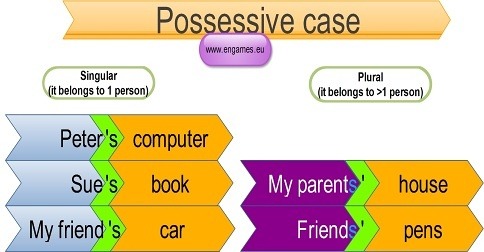













Це чудовий додаток!!!
Дякую!